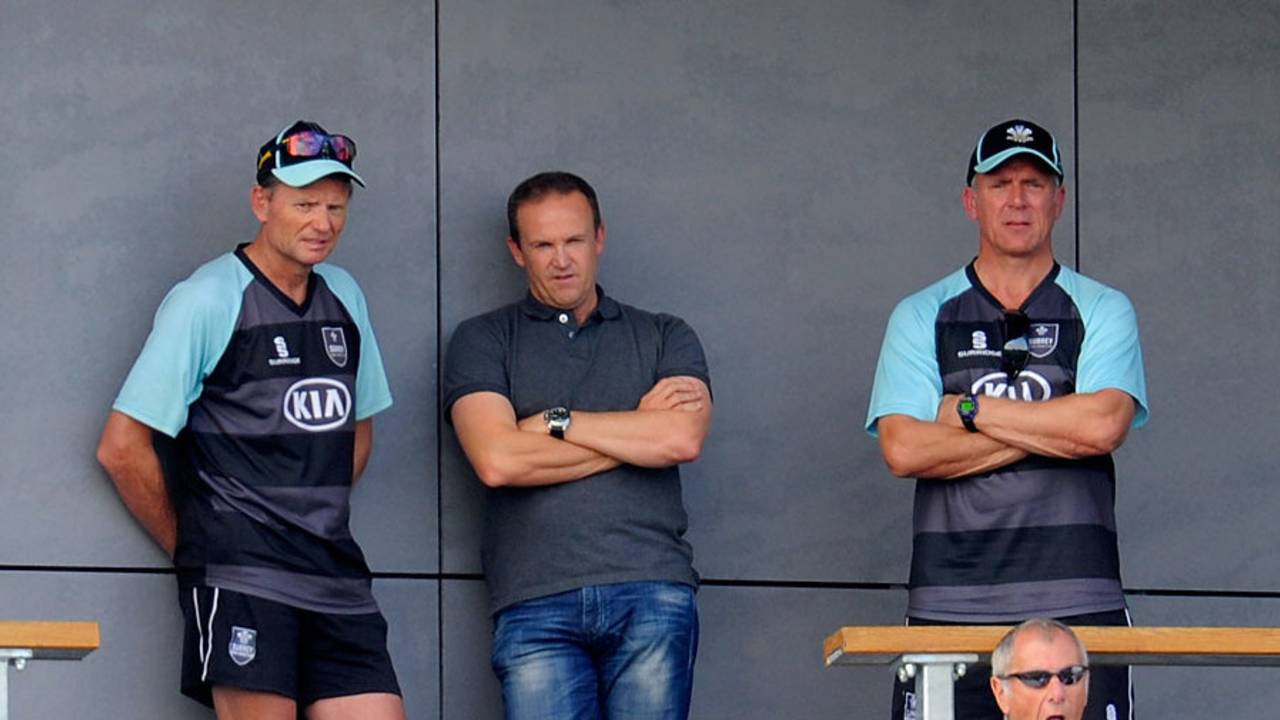The candidates to replace Downton
ESPNcricinfo runs the rule over those in the frame for the director of England cricket role to be created by the ECB
Alec Stewart is believed to be on the ECB shortlist but Andy Flower is an unlikely appointment • Getty Images
Pros: A man respected for his abilities as a captain and a batsman, Vaughan knows what it takes to succeed at the top level in modern international cricket and has the confidence to take the bold decisions necessary. He has already held talks with Tom Harrison, the new ECB chief executive, and Colin Graves, and has expressed his interest in the role. At ease in the media spotlight, Vaughan may soften the image of the ECB and, as England captain, he showed an ability to manage diverse characters and create a winning environment. He has also spent long enough out of the side not to be compromised by personal relationships.
Pros: Respected as a captain, a player and a man, Strauss would be a popular choice with players, spectators and media. A member of the dressing room until 2012, he understands the demands of modern international cricket and was successful, on the whole, at forming the diverse characters under his command in to a high-performing team. He will also be seen, at the ECB, as a safe pair of hands who is unlikely to rock the boat in the same way as Vaughan. Hugh Morris, who was in the role before Downton, wanted Strauss to succeed him at the time. Sooner or later, he will probably get his way.
Pros: Another hugely admired figure within the English game, Stewart's record as a player demands respect while his dedication to all things England is unquestionable. Having experienced good and bad times with the national side, he knows what is required to succeed and is comfortable in front of the media. Speaking at Surrey's media day, he indicated his willingness to be considered, saying "you'd be silly not to listen" to a request from the ECB.
The architect of some of the best years in England's recent history, Flower knows better than anyone what is required to achieve success. Hugely demanding, vastly experienced and, in a management role, able to take a step back from the dressing room and allow those with a lighter touch to implement strategy, the role would also be a far better use of Flower's skills than his current nebulous job at the ECB. But the new management are keen not be seen to take a backward step and Flower - whose demanding methods may well work better over a shorter term - comes with baggage. An unlikely appointment.
An exceptional candidate, who has the respect, the credibility, the drive and the knowledge to make a difference, Hussain appears reluctant to consider the role. Which probably makes him far more sensible than everyone else involved. Plain speaking, demanding and experienced enough to know when to apply the carrot and the stick, his aversion to getting involved should be a considerable cause of regret.
Another strong candidate, Giles experienced good and bad times as an England player and learned what it takes to succeed at the top level. Initially a success as a coach with Warwickshire, he also took the England ODI side to the brink of the Champions Trophy and seemed to have created an excellent environment in the team before things imploded following the Ashes debacle of 2013-14. While it would be odd - even by the ECB's recent standards - to appoint someone sacked as coach a year ago to oversee the man who was appointed ahead of him, the current management is new and such a scenario is not completely impossible. On merit alone, Giles has a strong case.
Another former player respected as much for his character as his record on the pitch, Fraser has yet to create a winning culture at Middlesex and might be tainted - unfairly - with recent failures due to his position as an England selector. A straight-talking, high-achieving man, he should be another strong contender.
George Dobell is a senior correspondent at ESPNcricinfo
